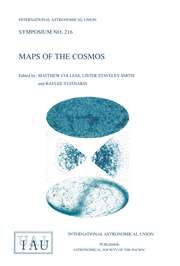No CrossRef data available.
Article contents
Galaxy Formation
Published online by Cambridge University Press: 04 August 2017
Abstract
Theories of galaxy formation via hierarchical clustering of cold dark matter and by fragmentation of gaseous pancakes or shells are reviewed and compared. Dissipative processes are crucial to all theories of galaxy formation, and are discussed in terms of a simple model involving multiple cloud interactions. Stellar energy input is found to play an important role in protogalaxies, both supporting the gas against collapse, thereby prolonging the duration of the active star formation phase, and driving winds from the less massive galaxies. The significance of such processes is explored both for chemical and dynamical evolution and for biasing galaxy formation towards density peaks in the primordial density fluctuation spectrum.
- Type
- Review Paper
- Information
- Symposium - International Astronomical Union , Volume 117: Dark Matter in the Universe , 1987 , pp. 335 - 359
- Copyright
- Copyright © Reidel 1987


